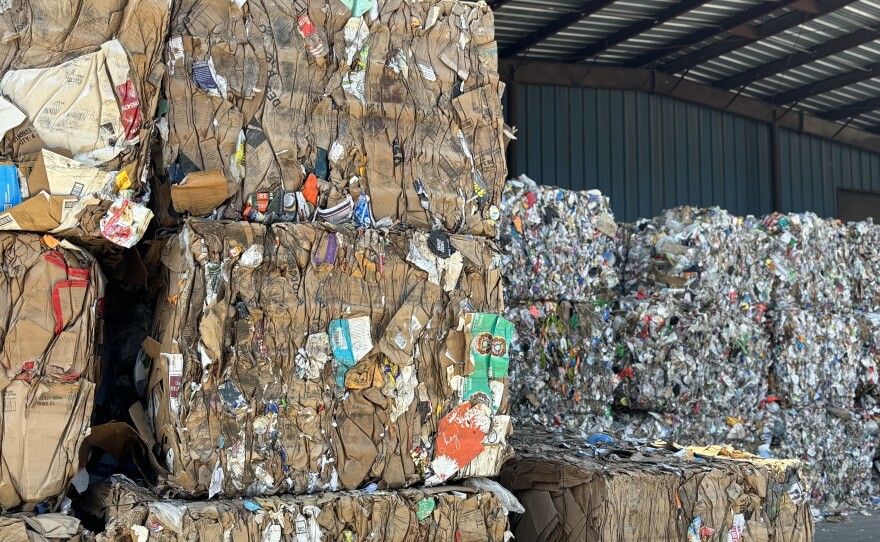Recycling and Disposal Solutions of Virginia handles about 3,000 tons of waste each month from the city of Portsmouth and private customers around Hampton Roads.
For about two decades, the company has processed recycling at its Portsmouth plant, while sending trash straight to the landfill.
But now, RDS is sending trash just next door, where new artificial intelligence technology can help extract valuable recyclables directly from trash bags.
“We think that this is the future of recycling, and the future of trash management,” said Joe Benedetto, RDS’ president.
Local officials gathered Wednesday for a grand opening and ribbon-cutting of the 33,000-square-foot new facility.
The technology comes from Colorado-based AMP Robotics Corp. CEO Matanya Horowitz said the vision system “basically lets machines see garbage in a way that was very difficult before.”
The company trained these systems to learn “hey, this logo is associated with this type of plastic,” Horowitz said. Or “this kind of shininess is associated with this type of paper.”
Benedetto said the technology can tell not only what’s recyclable but also an item’s brand or color.
“If one of our paper customers wants just pink paper, for example, the AMP technology can separate out all the pink paper for that customer,” he said.
They could work directly with companies like Coca Cola or Pepsi to send them bottles under their specific brand.

Inside the facility, over the heavy hum of machinery, employees pointed out cameras that hover over traditional recycling conveyor belts to identify recyclable commodities. Robotic arms then separate those from organic materials like food waste, which could be composted.
One of the recycling industry’s current biggest challenges is “wishful recycling,” when people throw in just about anything in the hopes it can be recycled. (General rule of thumb: only bottles, paper and cans go in the blue bin, but check with your individual locality.)
Benedetto said that ends up gumming up equipment and sending more trash to the landfill when recyclables are too contaminated to use.
If all goes well, RDS’ new system would allow customers to use just one bin, no longer separating trash from recycling – and cutting costs for local governments, many of which have struggled to maintain curbside recycling programs.
AMP says its system is designed to be located near landfills and transfer stations and “meaningfully extends the life of landfills.”
The regional waste authority is already looking for a way to do just that.
The Southeastern Public Service Authority says the Regional Landfill in Suffolk is running out of space for trash, especially given an influx looming as a local waste-to-energy plant closes soon. The Wheelabrator plant in Portsmouth – just down the road from RDS – previously processed about 80% of SPSA’s waste.
SPSA recently solicited bids for a contract officials hope will transform how it handles trash long-term.
“Our philosophy is to find a solution to the problem,” SPSA executive director Dennis Bagley told WHRO in March. “Putting waste in the landfill is only kicking the can down the road.”
RDS is among the bidders.


